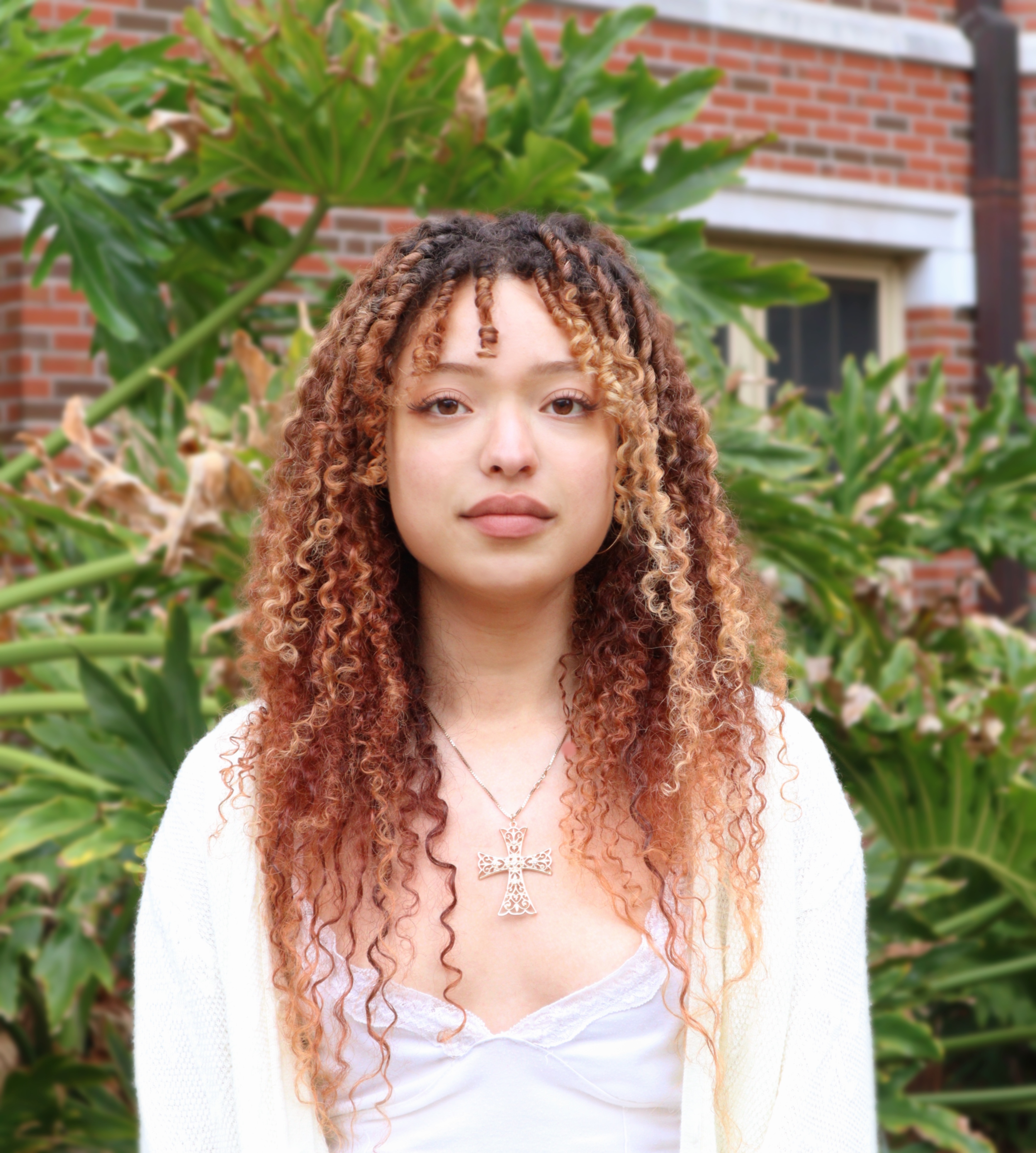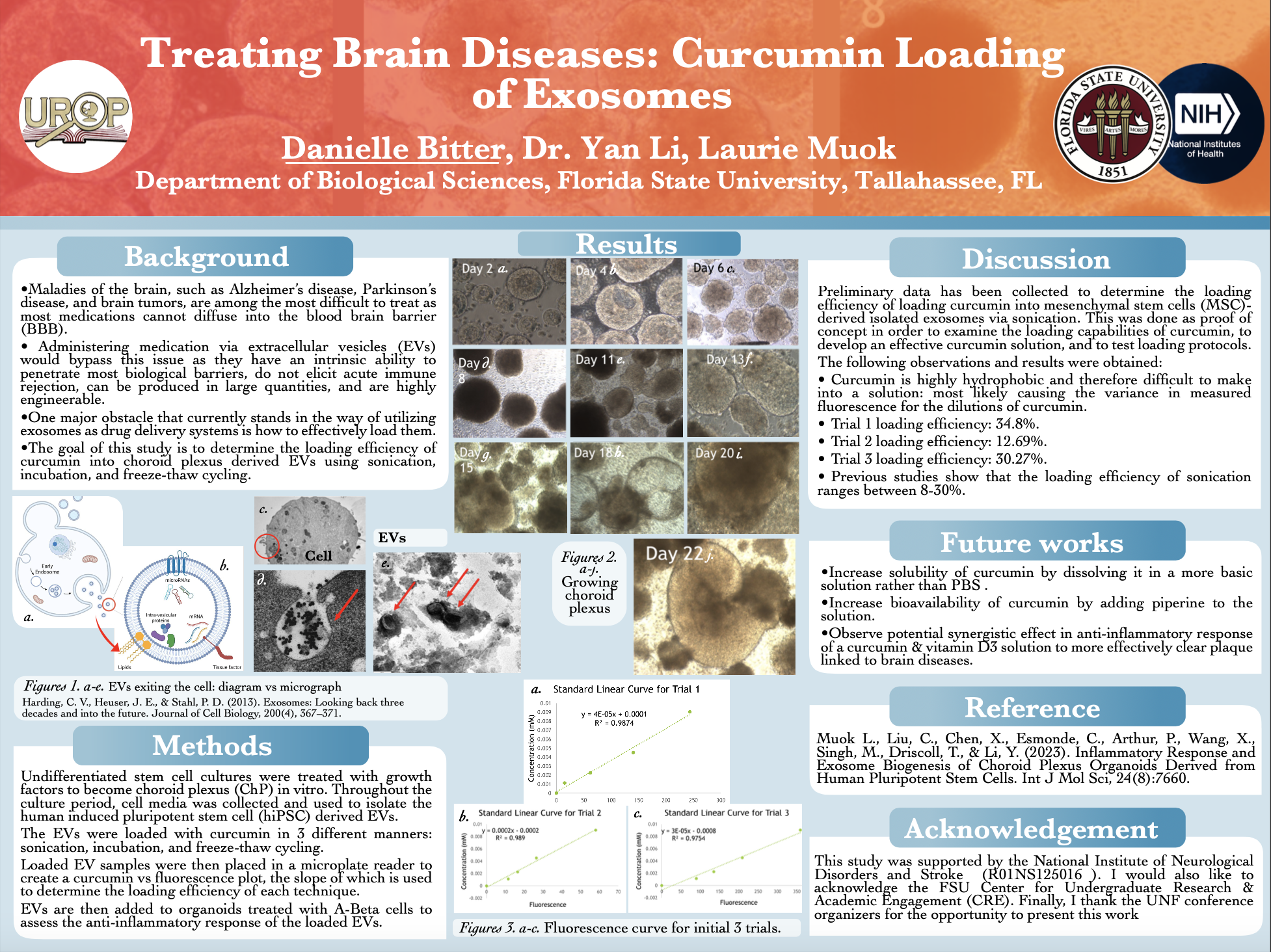Research Symposium
24th annual Undergraduate Research Symposium, April 3, 2024
Danielle Bitter Poster Session 1: 9:30 am - 10:30 am /145

BIO
My name is Danielle, I am a sophomore studying Biological Science with a focus on human health. Currently, I work as a medical scribe, where I am learning of the intricacies of medical treatment plans. Simultaneously, I'm on a path towards becoming a certified medical assistant to gain clinical experience and advocate for equitable and high-quality patient care.
Beyond my clinical endeavours, I'm driven to broaden my research horizons to become a well-rounded scientist. While my primary focus lies in biomedical engineering, currently aimed at curing brain diseases, I'm also intrigued by the effects of microplastics on human brain cellular longevity, and exploring innovative pharmaceutical synthesis.
Treating Brain Diseases: Curcumin Loading of Exosomes
Authors: Danielle Bitter, Dr. Yan LiStudent Major: Biological Science, minor in Chemistry & Interdisciplinary Science
Mentor: Dr. Yan Li
Mentor's Department: Chemical & Biomedical Engineering Mentor's College: College of Engineering Co-Presenters:
Abstract
Maladies of the brain, such as Alzheimer’s disease, Parkinson’s disease, and brain tumors, are among the most difficult to treat as most medications cannot diffuse into the blood brain barrier (BBB). Administering medication via extracellular vesicles (EVs) would bypass this issue as they have an intrinsic ability to penetrate these biological barriers, do not elicit acute immune rejection, can be produced in large quantities, and are highly engineerable. One major obstacle that currently stands in the way of utilizing exosomes as drug delivery systems is how to effectively load them. The goal of this study is to determine the loading efficiency of curcumin into choroid plexus derived EVs using sonication, incubation, freeze-thaw cycling. The most efficient manner of loading EVs is invaluable information as it will allow for more efficient processes of treating the brain through EV drug delivery systems. We will compare the anti-inflammatory response on A-Beta treated cell culture of the loaded EVs to determine which method has the best loading efficiency. Findings from this study will allow for drugs to effectively be administered to treat brain diseases.
Keywords: Curcumin, Extracellular vesicles, Anti-inflammatory, Stem cell-based organoids, Cerebral cortex


